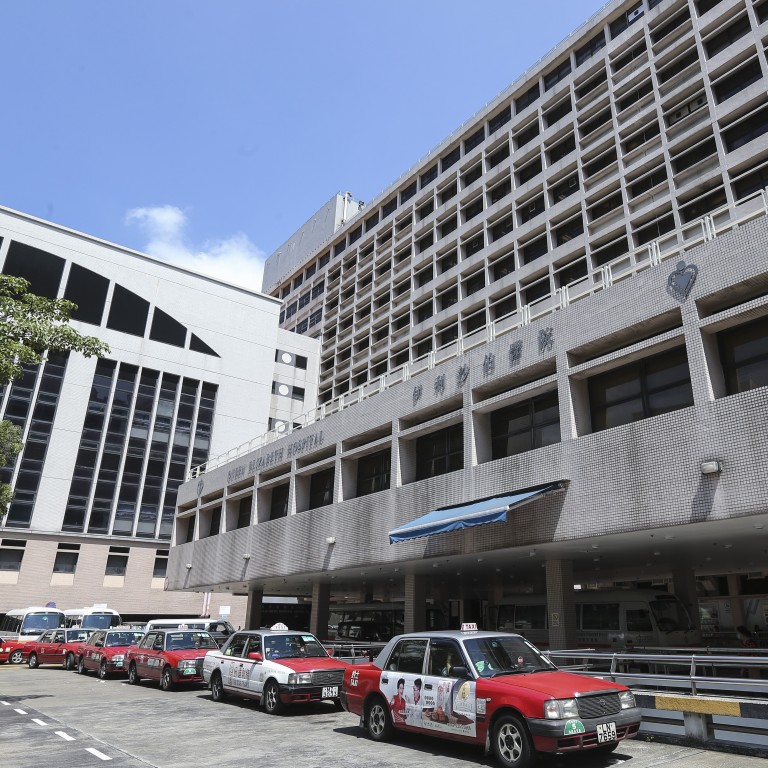
Hong Kong third wave: another patient in ward infected, sparking fears of coronavirus spreading in hospital
- A 64-year-old cancer patient in Queen Elizabeth Hospital confirmed with coronavirus after sharing ward with two others who have the infection
- Of the other 48 cases in city, 24 had unknown sources of transmission, prompting health officials to describe the latest outbreak as ‘very worrying’
Earlier in the day, officials had put the tally of new cases at 48, but the Hospital Authority said late on Tuesday night a 64-year-old female cancer patient, who had been placed in a ward in Queen Elizabeth Hospital with two others later confirmed with Covid-19, also had the infection.
Professor Yuen Kwok-yung, a top infectious disease expert from the University of Hong Kong who was among those looking into the spread of the virus in the hospital, said the chance of airborne transmission inside the ward was low.
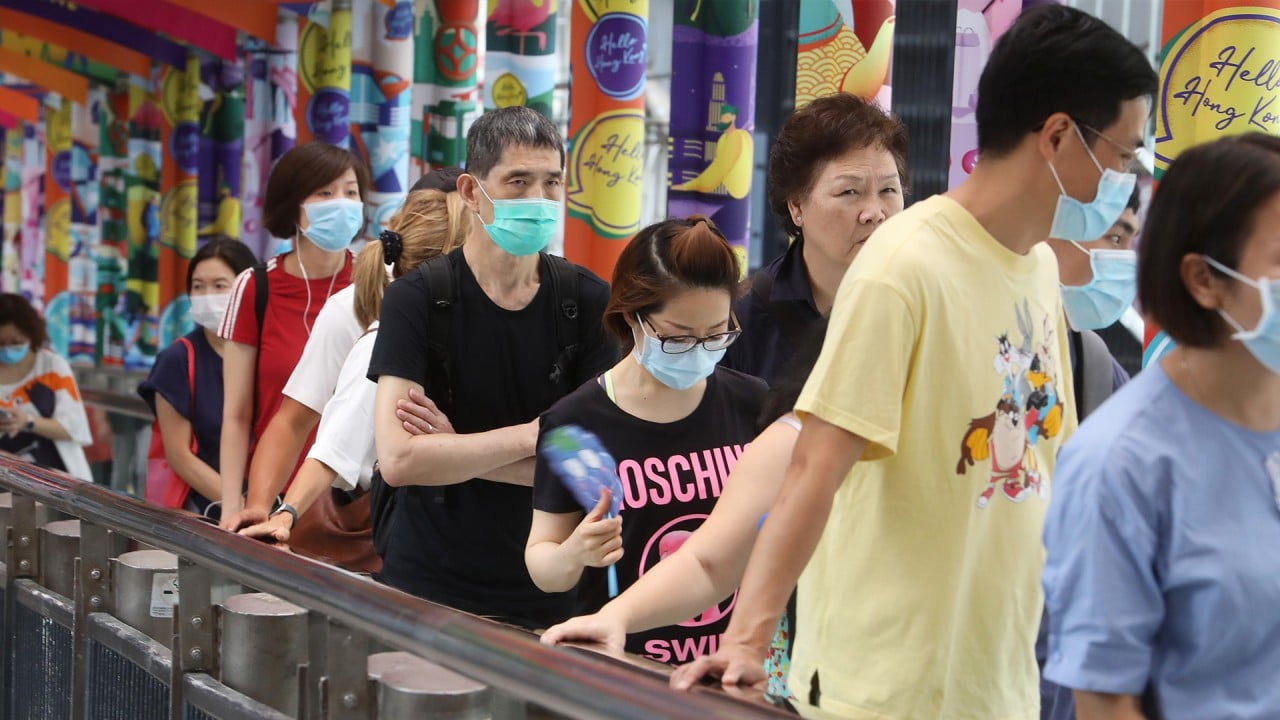
03:10
Hong Kong battles third wave of coronavirus infections
Instead, he believed transmission was likely caused by the surroundings being contaminated by the first infected patient, a 92-year-old woman who showed signs of heart disease but not fever when admitted, and later developed a cough.
“That patient sometimes pulled down her mask when breathing or coughing, as her breathing was not smooth. This action could contaminate the surrounding environment, such as bedside, bed rail and bed table, with the virus,” Yuen said.
“This elderly woman could also walk around by herself ... she usually would hold onto the sides of beds or tables while walking, and so the environment was contaminated.
“At this stage, we cannot rule out the possibility that there will be more cases [from the ward].”
But he added that all other patients and staff tested in the ward had returned negative results.
Medical equipment shared by the patients in the ward had been disposed of. Each patient would also get their own set of equipment to avoid risks of transmission.
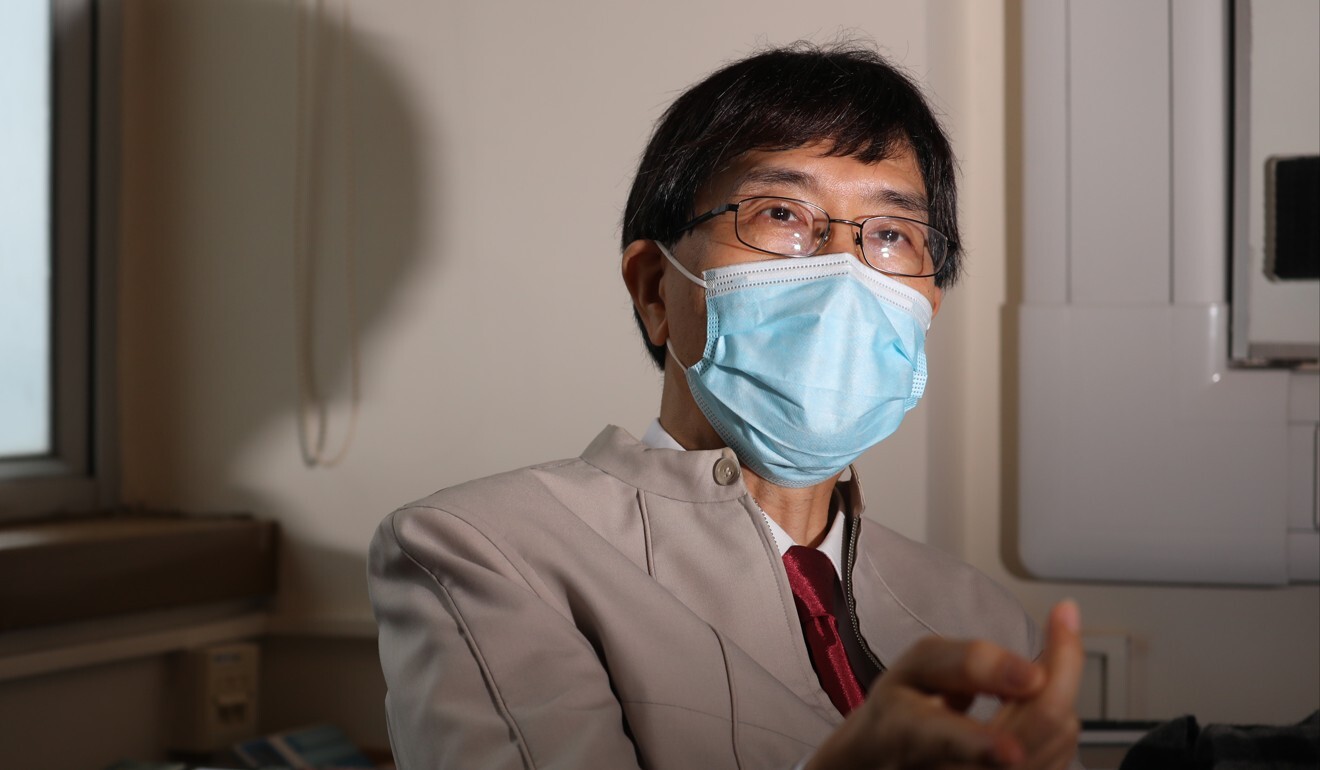
Public hospitals have stepped up surveillance for admitted patients in light of the incident.
Dr Raymond Lai Wai-man, the authority’s chief infection control officer, said patients who had shortness of breath because of heart failure would be tested for Covid-19.
Meanwhile, of the other 48 cases, 24 had unknown sources of transmission, prompting health officials to describe the latest outbreak as “very worrying”.
WHO alarmed as Covid-19 cases hit 13 million, rising 1 million in 5 days
Since July 6, 78 of 222 local infections have been of unknown origin.
“It is very worrying because … there are lots of unknown sources in the community that can spread easily and they may be asymptomatic,” Dr Chuang Shuk-kwan, head of the Centre for Health Protection’s communicable disease branch, told a regular press briefing in the afternoon.
Tuesday afternoon’s tally of 40 local coronavirus infections was the second highest in Hong Kong, after a record 41 local transmissions were reported a day earlier.
The new infections pushed the total number of coronavirus cases in Hong Kong to 1,569, with eight related fatalities, including a resident in a care home for the elderly who died on Monday.
Among the cases on Tuesday, 16 were linked to previous infections, while eight were imported, involving ship crew and domestic helpers arriving from the Philippines, as well as returnees from India and Britain.
Of the cases in the Queen Elizabeth ward, the second one was an elderly care home resident, sparking fears of another outbreak in care facilities after dozens of infections were recorded among staff and residents in Kong Tai Care for the Aged Centre Limited in Tsz Wan Shan last week.
Chuang said the 77-year-old woman, admitted after she fell in an accident, was in a bed opposite a case confirmed on Monday – the 92-year-old patient – in the ward for about a day.
She said the patient only spent half a day in Helping Hand Hong Kong Bank Foundation Lok Fu Care Home after being discharged from hospital on July 2, but was soon readmitted after taking ill and later transferred to Hong Kong Buddhist Hospital in Lok Fu for rehabilitation.
Dr Lau Ka-hin, chief manager of quality and standards at the authority, said the patient would be given an antibody test to ascertain the timing and route of her infection, adding infectious disease and microbiology experts would carry out a hospital inspection.
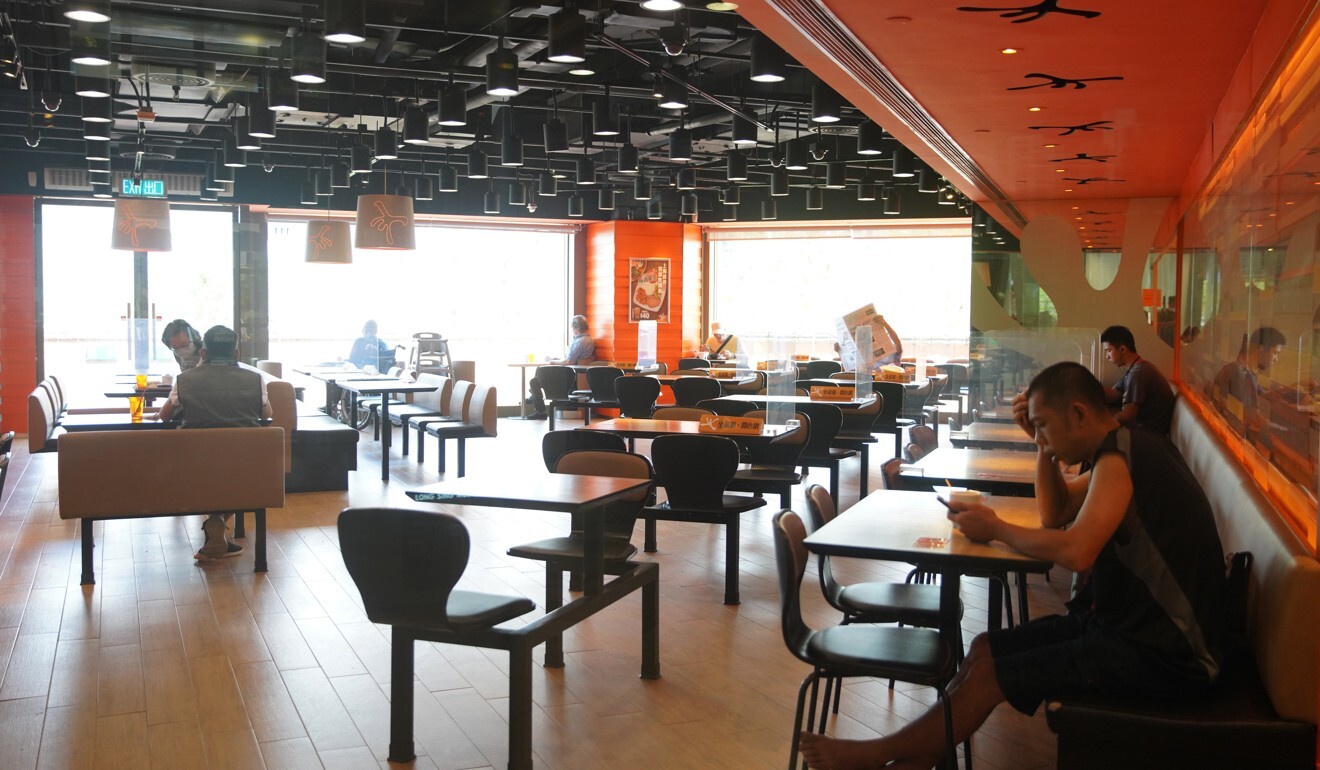
Authorities were also investigating another possible hospital infection, after an 83-year-old woman was confirmed to have the virus after receiving an angiogram in Princess Margaret Hospital in Kwai Chung on July 9.
Lau said the patient developed respiratory symptoms including a cough and runny nose two days later but the operation was not high-risk as it did not involve aerosol-generating procedures such as intubation, and therefore health workers did not wear full protective equipment at the time.
During her stay in hospital, the patient pulled down her mask to sneeze, affecting a nurse who was wearing a mask. The nurse tested negative for the virus, but would still undergo quarantine, Lau said.
A second Immigration Department employee, who worked on the same floor as a colleague confirmed to be infected on Monday, and a cleaner at Prince of Wales Hospital in Sha Tin, who tested preliminary positive for the virus on Monday, were also among the latest cases.
Dr Leung Chi-chiu, chairman of the Medical Association’s advisory committee on communicable diseases, said it was not surprising to see possible transmission happening inside a hospital.
“The biggest risk of disease spreading inside a hospital is due to an increase of transmission in the community. Many patients who were not suspected [to have Covid-19] were placed in a general ward, and they could infect patients around,” Leung said.
He said hospitals should conduct risk assessments on every patient before admission and Covid-19 tests on those with possibly higher risks of exposure to the coronavirus.
Coronavirus immunity may not last more than a few months: study
Procedures that were of higher risk of spreading the infection, such as sputum collection, should not be performed in general wards where infection control equipment was not of the highest standard.
While sources of infections of more than half of new local cases on Tuesday remained unknown, Leung said it showed that there was silent transmission of the virus in the community.
“As people are more alert now, cases of group clusters are expected to drop,” he said. “But cases of unknown sources will not come under control in the near future … the increase might slow down but a drop in cases will not be seen that soon.”
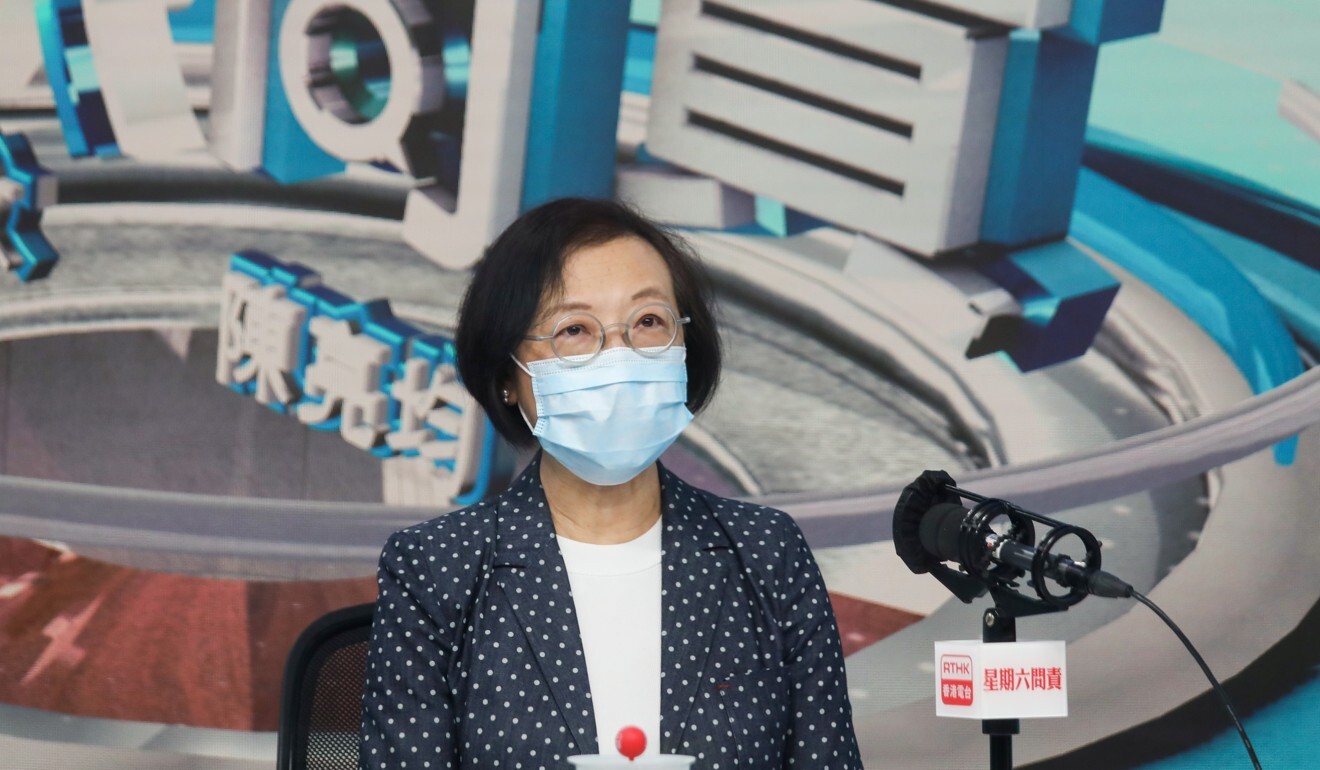
Hong Kong has drastically tightened its social-distancing rules in response to the spike in infections, with sweeping new measures due to come into force on Wednesday, including the banning of dine-in services between 6pm and 5am.
Secretary for Food and Health Professor Sophia Chan Siu-chee told a radio programme on Tuesday morning that it was possible the government could tighten restrictions on eating out.
“It is possible we would have to ban all dine-in services if the situation gets worse, because we want to cut down the time people spend eating in restaurants,” she said.
“We had considered which times were more suitable to encourage people to get takeaway, but we realised many people still have to go out to work and eat breakfast and lunch, so for dinner we hope people can go home to eat.”
Under the new rules, diners will also be limited to four per table at restaurants, while wearing a mask on public transport is now mandatory. Offenders face a HK$5,000 (US$645) fine.
Bars and 12 other types of venues, including gyms and karaoke lounges, as well as Ocean Park and Hong Kong Disneyland must close, and public gatherings are once again limited to four.


